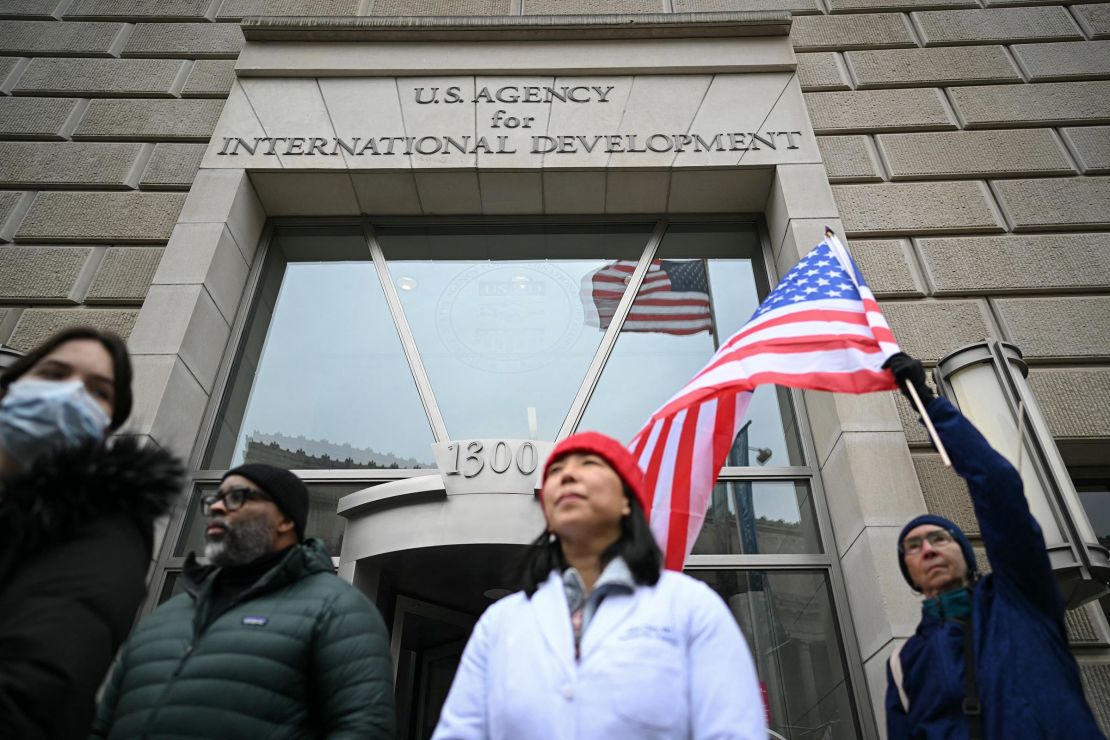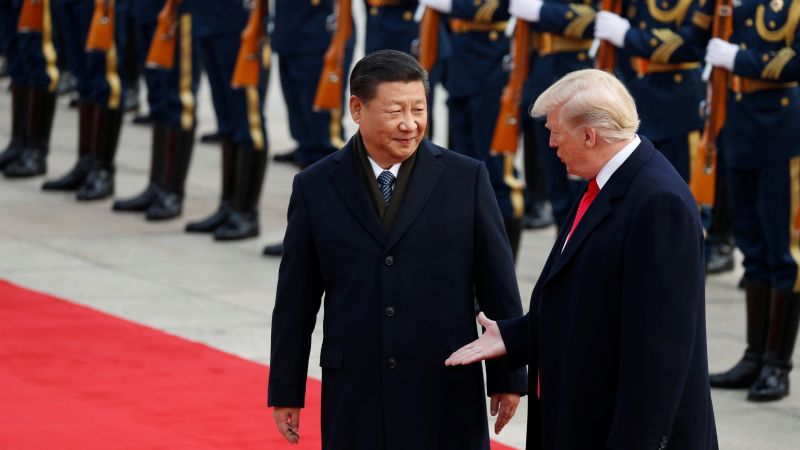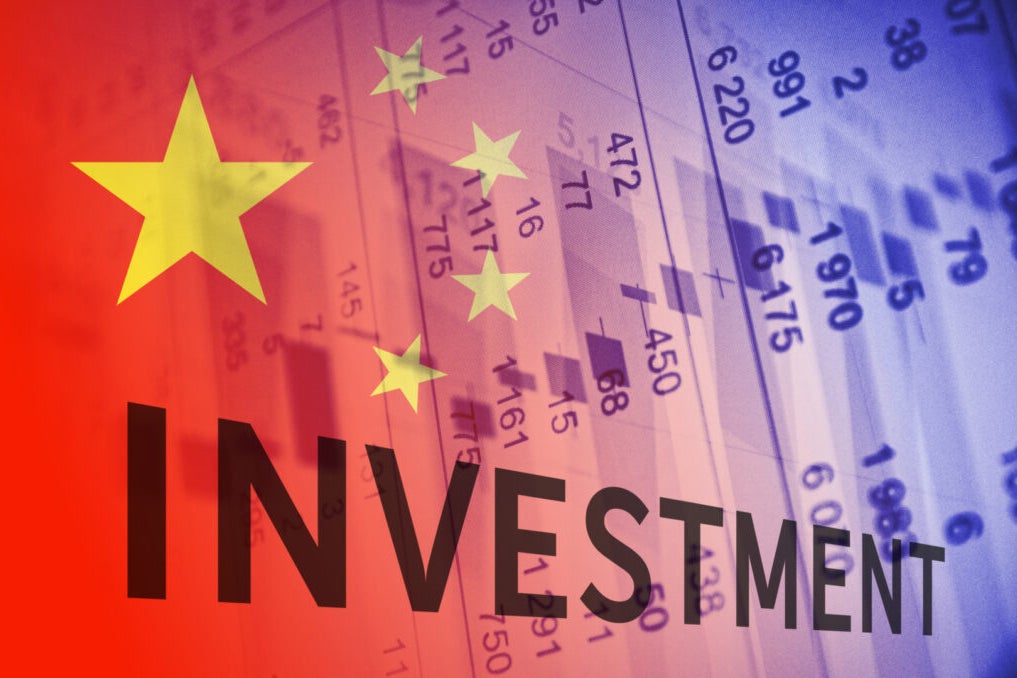CNN
—
The existence of the US Agency for International Development hangs in the balance. President Donald Trump is racing to shut it down, declaring it a waste of money and run by “lunatics.” But experts warn this plays straight into the hands of the very country he considers to be the biggest threat to US interests — China.
Efforts to dismantle the agency, which provides humanitarian and development aid, are moving at a frenetic pace. On the first day of Trump’s presidency, he ordered a 90-day freeze on almost all foreign aid. Elon Musk, head of Trump’s Department of Government Efficiency, said Monday that he was “feeding USAID into the wood chipper.” On Thursday, it was revealed the administration plans to slash the 10,000-strong workforce to fewer than 300 people.
It will leave billions of dollars in aid in limbo. The impacts will be immediate: ending life-saving global health programs, early warning systems and food security efforts.
It will also create a void into which other countries can step, said New Jersey Sen. Andy Kim. “Trump’s actions are weakening American global leadership and influence at a time when we face serious national security threats,” the Democrat said. “Trump is opening the door to our competitors and adversaries.”
Chief among these is China, which has long been building influence in the developing world through its huge investments. Multiple experts told CNN the country is poised to reap the benefits of a US withdrawal from the world stage.
The president is identifying “wasteful spending that does not align with the America First agenda while curbing Chinese influence abroad,” Anna Kelly, Whitehouse deputy press security, told CNN.
USAID was established in 1961 by President John F. Kennedy to counter Soviet engagement in developing countries. Its stated aim was to promote global social and economic development. “It’s a giant symbol of internationalism … of engaging with the rest of the world,” said Li Shuo, director of the China climate hub at the Asia Society Policy Institute.
In the decades since, USAID has helped build American influence, said Sherri Goodman, secretary general of the International Military Council on Climate and Security.
USAID is not just altruistic, it also serves national interests, said George Ingram, a senior fellow at the Brookings Institution and a former USAID official under the Clinton administration.
It can develop markets for the US to trade with, and has also helped make countries more stable, which can stem global migration and prevent the US from being drawn into conflicts overseas. USAID climate programs have built resilience and tackled energy poverty but have also created a “level playing field” for US renewable energy companies, said Gillian Caldwell, former USAID chief climate officer who left the agency at the end of December.
Withdrawing this aid creates a “power vacuum” and offers a “great gift” to China, Goodman said. The country’s influence in the Global South has been growing for years.
In part, this is happening through its Belt and Road Initiative, which has poured hundreds of billions of dollars into economic development and infrastructure projects across Asia, Africa, Latin America and parts of Europe. President Xi is cultivating China’s image “as the natural leader of the Global South,” said Steve Tsang, director of the China Institute at the School of Oriental and African Studies.
China is unlikely to directly replace lost USAID funding, Tsang said. These programs mostly involve aid assistance whereas China’s development assistance is overwhelmingly loans. That has led to criticism Beijing is saddling developing countries with unsustainable debt — a charge it denies.
There are also signs China’s development financing has been slowing in recent years, especially for bigger-ticket items.
But, Tsang said, dismantling USAID will allow China to project itself as a consistent, reliable partner — in stark contrast to the US — and forge stronger relationships across the Global South, increasing its geopolitical might. It will also help China stand out as a climate leader, he added, further cementing its dominance in clean energy technology.
Max Primorac, a senior research fellow at the Heritage Foundation and a deputy official at USAID during Trump’s first term, rejected the idea dismantling USAID would boost China.
It’s the opposite, said Primorac, who authored a chapter on overhauling USAID in Project 2025, the right-wing blueprint for Trump’s second term. USAID’s “green energy agenda” locked countries into reliance on China, he told CNN, and said the agency had lost its legitimacy by becoming a vehicle to export “ideology,” including climate change.

It’s unclear which, if any, USAID programs might survive. Acting administrator of the agency Secretary of State Marco Rubio has said there are parts of USAID funding he supports but details remain vague.
Even if some projects remain, there are huge concerns that trust in the US has already been fatally undermined and there will be one big winner.
“Trump has probably done more to make China great again in two weeks than Xi has managed to do in his own right in over a decade,” Tsang said.
CNN’s Simone McCarthy contributed to reporting


